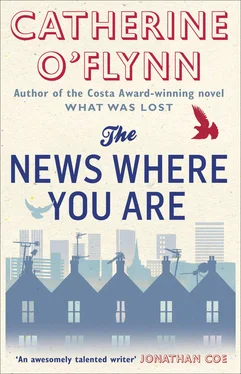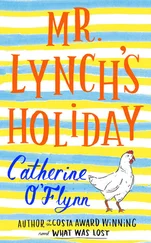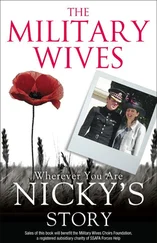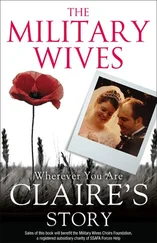Catherine O'Flynn
News Where You Are
He gave up any pretence of jogging now and walked slowly along the lane, following in the wake of an empty crisp packet blown along the tarmac. Without its example he wasn’t sure he’d have the will to move forward.
His steps were heavy and the elasticated cuffs of his tracksuit made his wrists itch. He looked at the loose flesh on the back of his hand pinched by the bright red polyester and found the contrast grotesque.
Mikey had let him down again. Finally he understood that Mikey would never do it.
The sky had darkened as he walked along and now the first fat drops of rain splattered on the road around him. Phil nodded his head. Rain was all that had been missing.
He heard a car approaching. Its passing force would whip the crisp packet away and he didn’t know what he’d follow then. The driver was making the most of the straight country lane and picking up speed. Phil moved slightly closer to the hedgerow on his left. He knew he cut a pitiful figure — an old rain-soaked man dressed head to toe in Nike. Jimmy bloody Savile.
The car was getting closer now and as it did it veered slightly towards Phil’s side of the lane. Phil smiled blandly in its direction — force of habit. As it drew down upon him, he realized that the driver wasn’t going to swerve away. In the last few seconds, the sky’s reflection on the windscreen vanished, and Phil saw the familiar face behind the wheel, white with fear and running with tears.
Frank’s daughter sat in the front passenger seat humming the same tune over and over. The notes spiralled upwards and then abruptly plummeted, before starting the ascent again. Frank drove towards the city.
‘What’s the tune, Mo?’ asked Frank.
‘It’s a song by The Beatles. It’s a man asking questions about when he gets old.’
‘What? “When I’m Sixty-Four”?’
‘Yeah. That’s it … Dad, do you want to know something?’
‘Erm, yes, please.’
‘When I’m sixty-four, I’ll be eight times older than I am now. Eight times eight is sixty-four.’
‘That’s true.’
She looked out of the window. ‘Eight hundred per cent!’ She shook her head in amazement and began to hum again.
Frank frowned. ‘But “When I’m Sixty-Four” doesn’t sound anything like that.’
Mo beamed. ‘I know! I invented a new tune. It’s better.’
‘Oh, okay.’ Frank paused. ‘It’s very different to the original. Are the words the same?’
‘I don’t know, I’m just humming.’
‘I know, but in your head are the words the same?’
‘No. They’re better too. He wants to know will there be robots, and will his cat be able to talk and will his car fly.’
‘It’s quite a strange tune.’
‘It’s how he thinks music will sound when he’s old.’
‘Oh, I see, future music. That explains it.’
Mo hummed another few bars and then, to Frank’s relief, stopped.
‘Dad?’
‘Yes.’
‘Do you think Gran ever listens to music?’
‘Not future music. I don’t think so.’
‘No. I mean any music.’
‘Yes, I’m sure she does sometimes. She has a radio in her room.’
‘I know, but it’s all covered in dust. She should listen to music. I think it would make her less sad. She could listen to stuff she remembered when she was young.’
Frank said nothing.
‘Maybe I could take her some old music and she could listen to it on my headphones.’
Frank glanced at Mo. ‘Sometimes old music makes people sad. It reminds them of the past and things that have gone.’
‘Oh,’ said Mo.
Frank reached across and squeezed her hand. Mo spent a lot of time trying to think of ways to make his mother less unhappy. It was a project for her.
‘Are we going a different way to the supermarket?’
‘I want to show you something first.’
‘Okay.’
Frank put the radio on and they listened to a comedy programme. Mo laughed when Frank laughed.
He parked on a meter in a back street and then walked with Mo down to the busy ring road. A pedestrian bridge spanned the six lanes of traffic and Mo and Frank climbed the zig-zagging concrete steps to the top. Halfway across they stopped. Frank bent down towards Mo so she could hear him above the roar of the traffic. Her hair blew into his face.
‘Remember I told you about my dad.’
‘That he had a dog!’ said Mo excitedly.
‘Yeah, that’s right. He had a dog when he was a boy. But do you remember what I said my dad’s job was?’
‘Yes. He was an architect. He made buildings.’
‘Can you see that block over there? The tall one with the dark glass.’
‘Yeah. I can see it.’
‘That’s called Worcester House. My dad designed that building.’
‘Did he live in it?’
‘No, he didn’t live in it. We lived in a house. He made this for people to work in.’
‘How many floors has it got?’
‘Twenty.’
‘Are there escalators?’
‘No, there are two lifts.’
‘Can we go up in them?’
‘No, I’m sorry. We can’t go in the building now.’
‘Can we go and look at it?’
‘That’s where we’re going.’
Mo ran across the rest of the bridge and then waited for Frank to catch up. The building was a little further away than it seemed from the bridge, tucked amidst a cluster of other blocks, converted townhouses and car parks. Worcester House was a classic mid-period Douglas H. Allcroft and Partners creation. Built in 1971 it was an uncompromising, thuggish-looking block, clad in precast concrete panels and devoid of all exterior decoration. Despite its height it appeared squat and defensive, occupying a large plot on the corner of Carlton Street and Newman Row, glowering down on the few Georgian blocks still remaining in the centre.
As they drew closer to it at street level, Mo noticed the white boards all around the outside of the building:
‘Why are the boards there, Dad?’
‘They’re there to protect people when they demolish the building.’
Mo stopped walking. ‘They’re demolishing it?’
Frank nodded. ‘That’s why I brought you today; it’ll be gone soon.’
‘But why are they knocking it down? Is it broken?’
‘No, it’s not broken; it’s fine. It’s just … they don’t need it any more.’
‘But, Dad, loads of people could work here. Or they could use it to put homeless people in — that’d be better than sleeping on the streets. They could sleep under desks and go up and down in the lifts.’
‘They want to build new homes in the city now — apartments for the people who work here — and this building isn’t right for homes. Dad didn’t build it for that, and so they say it has to be taken down and started again.’
Mo thought for a while. ‘Does that happen to all buildings? Do they all get knocked down?’
‘Some stay for a long time. Like Aston Hall. But lots don’t. It’s a bit like clothes. You know, you wouldn’t wear the clothes Mom and I used to wear — they’d seem really uncool to you — and sometimes that happens with buildings. People just don’t like them any more; they aren’t fashionable.’
Frank realized that unfashionable wasn’t quite adequate. People did not feel about his father’s buildings the way they felt about marble-washed denim or ski-pants. They might smile ruefully and shake their heads about their own lapses in taste, but not those imposed on their city. Aside from the family home he built in Edgbaston, only two of the eight buildings his father had created in the city remained. In a few weeks there would be only one.
Читать дальше












